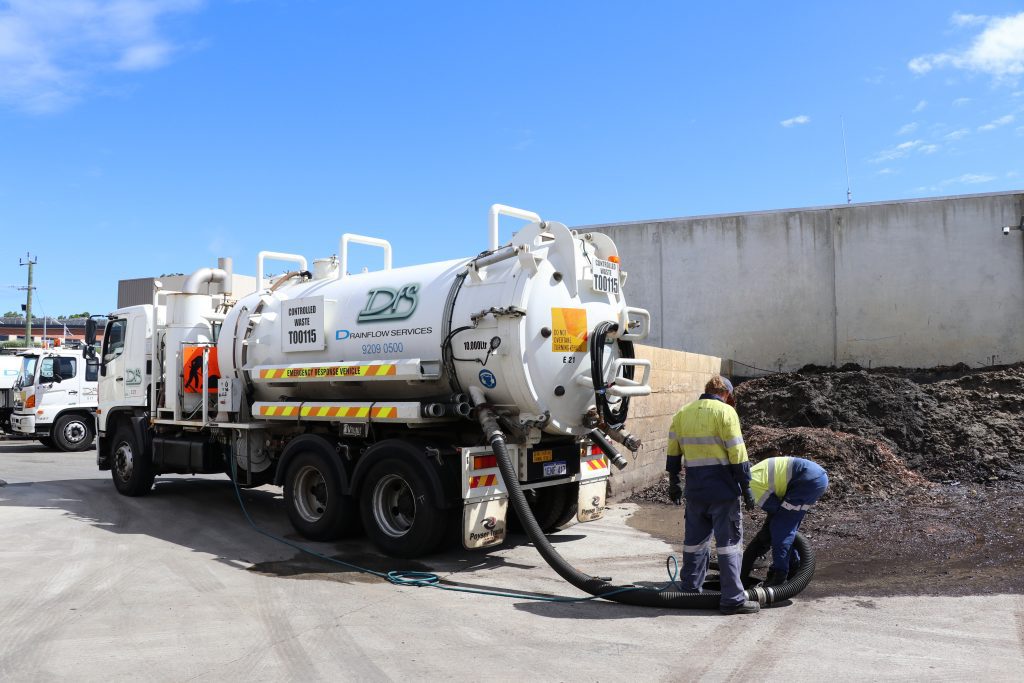The 3-Minute Rule for Reclaim Waste
The 3-Minute Rule for Reclaim Waste
Blog Article
Some Known Details About Reclaim Waste
Table of ContentsA Biased View of Reclaim WasteThe Only Guide for Reclaim WasteReclaim Waste Can Be Fun For AnyoneThe 9-Minute Rule for Reclaim WasteThe Buzz on Reclaim Waste
Check out the types, occurrences, and kinds of fluid waste. Residential sewage waste refers to the waste and items from a residential septic tank. This type of waste is created by humans in residences, colleges, and various other buildings. This only includes septic systems that have a drainpipe area. The appropriate management and disposal of residential sewer waste require liquid waste to be moved to a sewage treatment plant where the correct techniques and tools are used to cleanse and take care of waste.
Commercial waste frequently includes prospective dangers, such as combustible products or a combination of liquid and strong waste items, and needs an advanced and comprehensive disposal procedure. The disposal of business waste generally entails the filtration of waste before transport to make sure secure and appropriate disposal. Hazardous waste is created from by-products and drainage of industrial procedures and manufacturing.
This sort of waste can not use the exact same sewage management transportation or procedures as septic or industrial fluids. The industrial waste management process calls for the evaluation and testing of liquid waste prior to it goes through the disposal procedure (liquid waste removal). Drainage waste is the fluid waste that originates from drainage and excess stormwater in extremely booming locations or cities
Overflow waste can cause contamination and flooding if not taken care of appropriately. Find out more regarding drain cleansing and waste monitoring. Making sure proper waste management can prevent calamities and lower environmental harm. Both individuals in residential setups and specialists in business or manufacturing industries can profit from comprehending the processes and regulations of liquid waste monitoring.
Our Reclaim Waste Diaries
Call PROS Providers today to find out about our waste administration and disposal solutions and the correct means to take care of the fluid waste you create.
(https://pubhtml5.com/homepage/kwjac/)Do you recognize what happens to your water when you disengage, purge the commode or drain pipes the cleaning equipment? No? Well, it deserves knowing. This supposed 'wastewater' is not just a vital resource but, after therapy, will be launched to our land, rivers or the sea. Utilized water from commodes, showers, baths, kitchen sinks, laundries and industrial processes is known as wastewater.

water utilized to cool machinery or clean plant and tools). Stormwater, a form of wastewater, is overflow that flows from agricultural and urban locations such as roofing systems, parks, gardens, roads, courses and rain gutters into stormwater drains, after rain. Stormwater streams untreated directly to regional creeks or rivers, ultimately getting to the sea.
What Does Reclaim Waste Mean?
In Queensland, most wastewater is dealt with at sewage therapy plants. Wastewater is moved from residential or industrial websites with a system of drains and pump terminals, referred to as sewage reticulation, to a sewage therapy plant. Local federal governments construct, preserve and operate most sewer therapy plants. Operators are accredited under the Environmental Protection Act 1994 to release cured wastewater at an acceptable environmental standard right into waterways.
The Division of Natural Resources recommends city governments regarding managing, operating and keeping sewerage systems and therapy plants. In unsewered locations, regional federal governments may require homeowners to mount individual or house sewage treatment systems to deal with residential wastewater from commodes, kitchens, washrooms and washings. The Division of Natural Resources authorises making use of family systems when they are proven to be reliable.
In some brand-new class, treatment of some stormwater to eliminate litter, sand and crushed rock has started using gross contaminant catches. Wastewater treatment happens in 4 stages: Eliminates strong matter.
Wastewater after that flows right into large storage tanks where solids work out and are eliminated as sludge. Grease and residue are skimmed from the surface. Makes use of little living organisms understands as micro-organisms to break down and eliminate continuing to be dissolved wastes and fine particles. Micro-organisms and wastes are integrated in the sludge. Gets rid of nitrogen and phosphorus nutrients that can cause algal blooms in our waterways and threaten water life.
The Reclaim Waste Diaries
Nutrient elimination is not offered at all sewage therapy plants because it calls for pricey specialist tools. It is ending up being much more usual in Queensland. Clear fluid effluent created after therapy may still include disease-causing micro-organisms. If this effluent is launched right into waterways such as rivers or the sea, the micro-organisms will ultimately pass away out.

The majority of wastewater streams right into the sewage system. Under the Act, neighborhood governments administer authorizations and permits for ecologically pertinent tasks (Periods) involving wastewater releases that might have a local effect.
What Does Reclaim Waste Do?
Otherwise, samples are taken for research laboratory analysis. Usually many tests are required to establish the levels of each of the different contaminants such as oils, hefty steels and chemicals in water. Tracking offers accurate info regarding water quality and can validate that licence problems are being satisfied. The information gotten with surveillance provides the basis for making water top quality choices.
Report this page